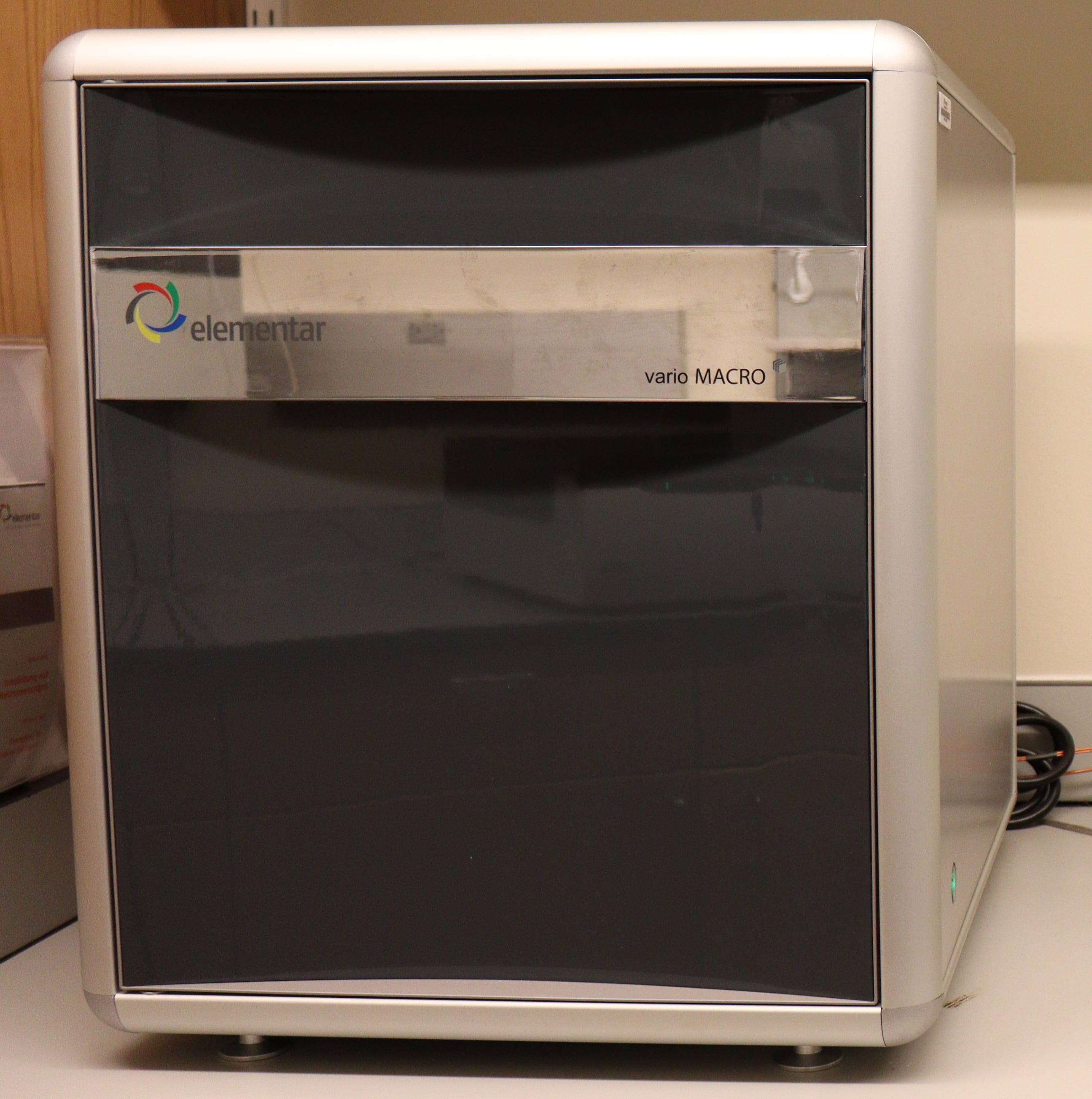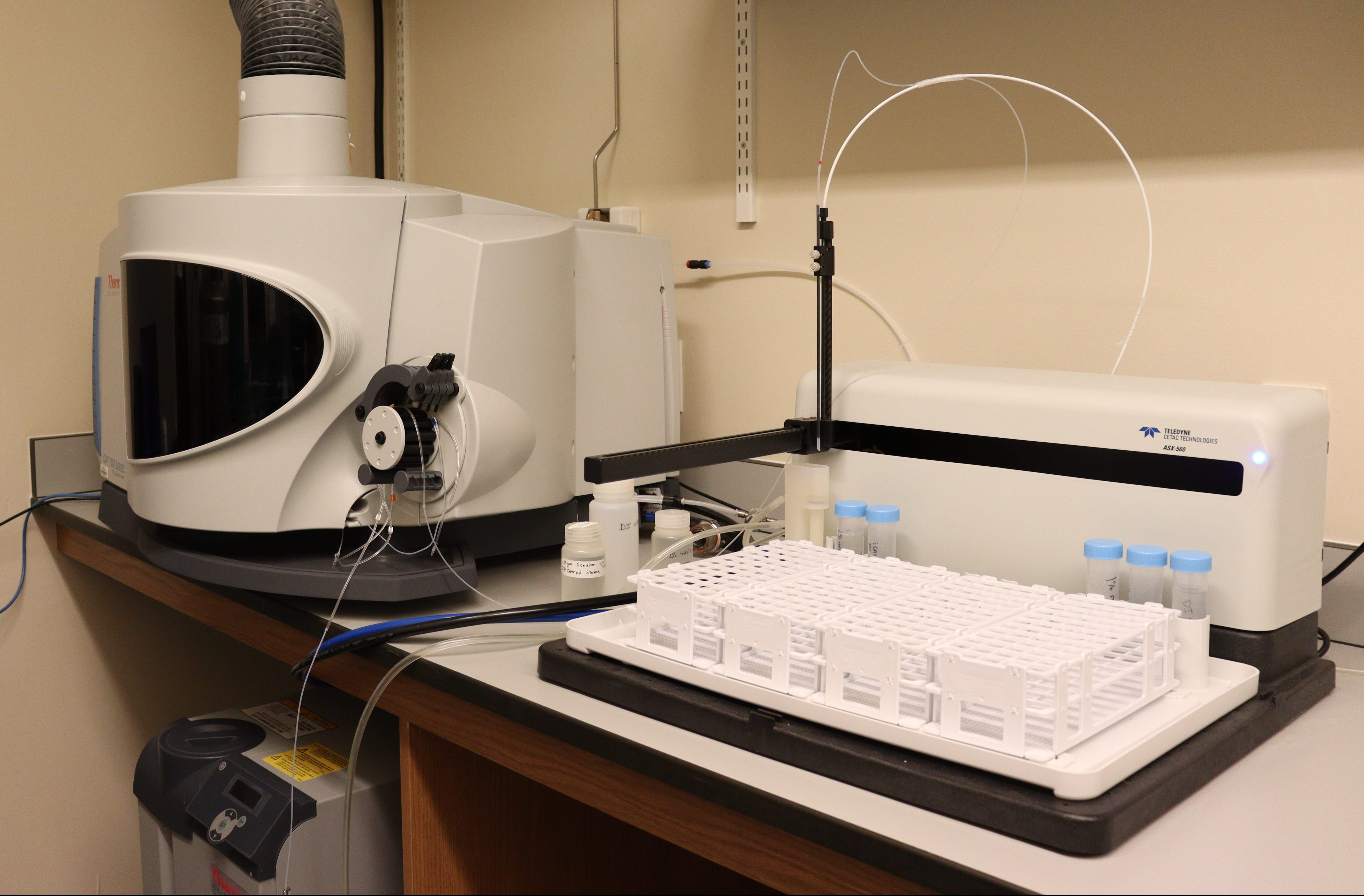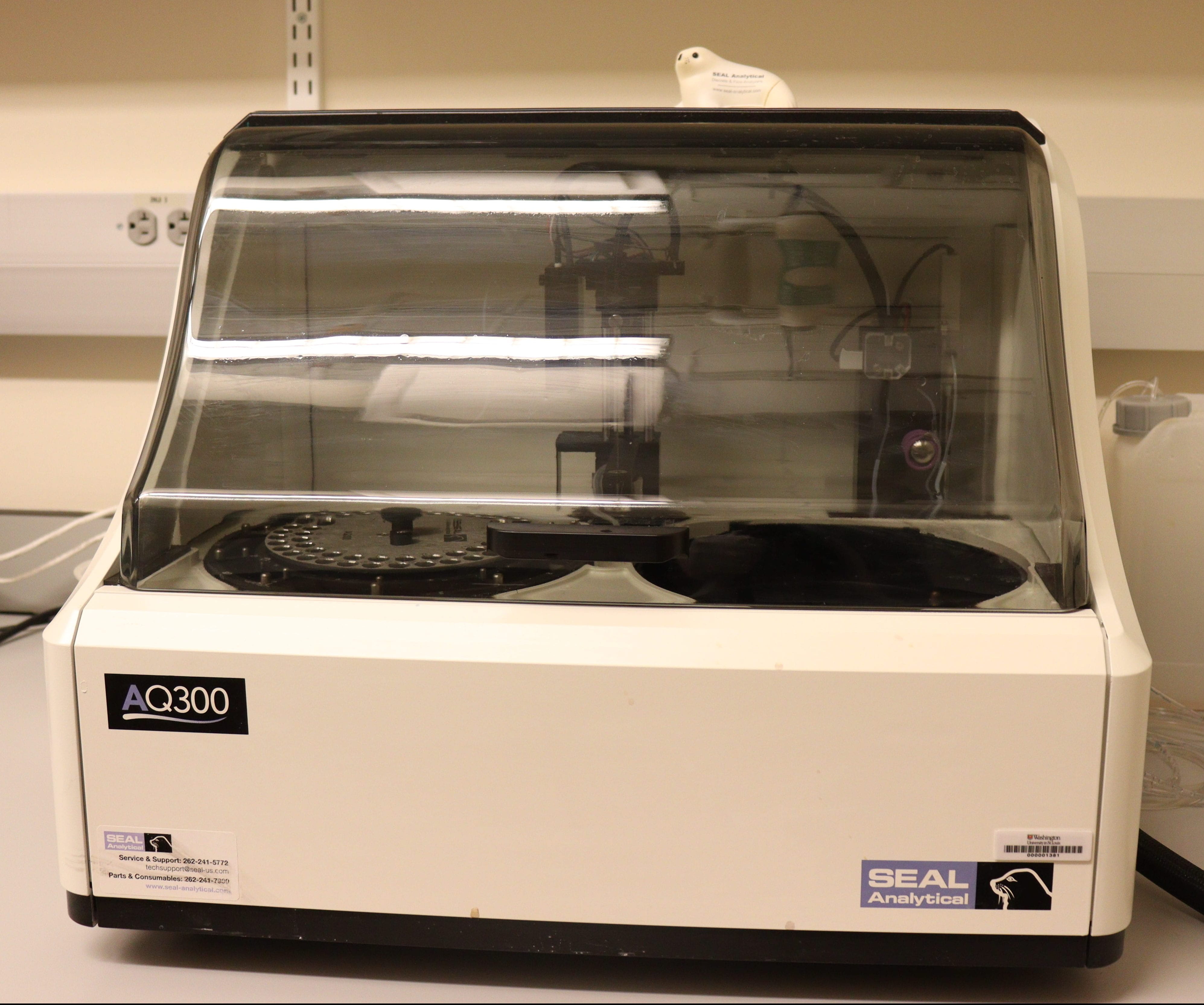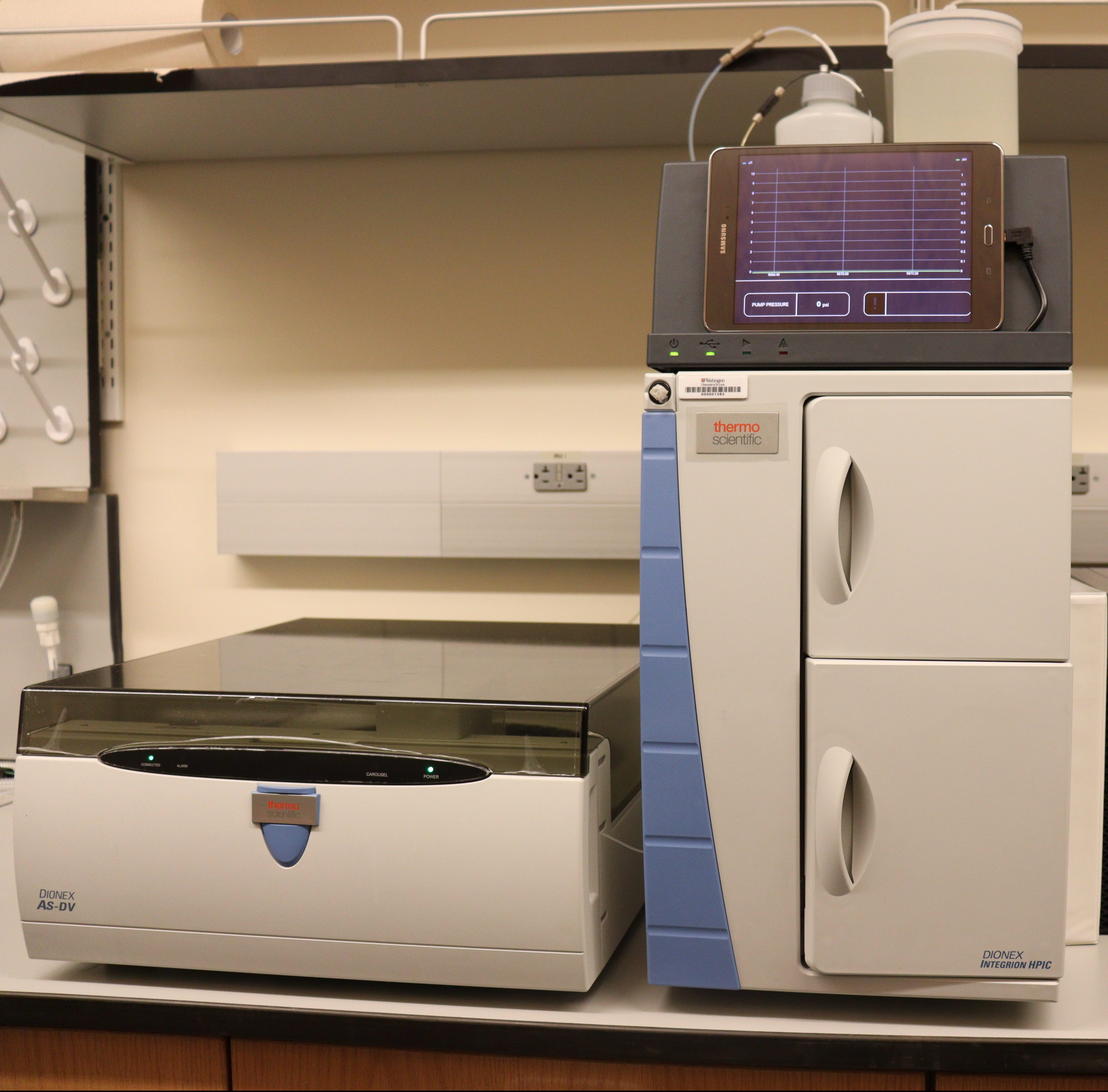Welcome to the Analytical Biogeochemistry Laboratory: A resource for soil, water, and plant analyses at Washington University and in the St. Louis region
Explore the available capabilities below. The laboratory is open to new users and can also provide analyses as a service.
Available Instruments and Analyses

Elementar vario MACRO cube CHNS Analyzer
The Elementar MACRO cube is a combustion-based elemental analyzer designed to measure the total contents of carbon, nitrogen, sulfur, and hydrogen in solid samples.
Analyses typically require between 10 and 200 mg of dry material, such as soil, sediment, or plant samples.

Thermo iCap 7400 Duo ICP-OES
The iCap 7400 ICP-OES measures major elements (Na, Mg, K, Ca, Al, Si, P, S, Fe) and trace elements in water samples, including from soil, sediment, and plant extractions or digestions.
Most elements are detectable at concentrations as low as 0.05 mg/L.
Analyses typically consume a few milliliters of sample, which must be filtered and free of particulates.

Seal AQ300 Discrete Analyzer
The Seal AQ300 conducts automated spectrophotometric analyses dissolved concentrations of the following nutrients: nitrate, nitrate, ammonium, and phosphate. Other analyses are available upon request.
The instrument uses water samples, including soil and plant extracts.
Analyses typically consume a few milliliters of sample, which must be filtered and free of particulates.

Thermo Dionex Integrion HPIC
The Integrion HPIC measures dissolved anions, including chloride, sulfate, fluoride, phosphate, nitrate, and bromide, as well as organic acids in water samples.
Analyses typically consume a few milliliters of sample, which must be filtered and free of particulates.
Example Projects
- Nutrient analyses in soils from plant mesocosm experiments and in woodland restoration
- Tracking denitrification in wetland soil microcosm experiments
- Dissolved iron, manganese, and oxychlorine species in Mars analog experiments
- Major elements and nutrients in plants and soils from urban gardens and parks
- Nutrient flows in plant-caterpillar systems
- Abundance of nitrogen species in atmospheric particles
- Dissolved major cations, anions, and nutrients in rivers and streams
- Compositional analysis of clay minerals
User Fees and Access
The instruments are open for use to all members of the Washington University community and researchers from the surrounding region. The laboratory will train interested users in the operation of the instruments but can also analyze samples upon request for an additional staff assistance fee. A uniform fee schedule applies to all users and solely recovers the operating costs of the laboratory:
| Instrument | Fee |
|---|---|
| Elementar vario MACRO cube CHNS Analyzer | $9.00 per sample |
| Seal AQ300 Discrete Analyzer | $8.75 per sample |
| Thermo iCap 7400 Duo ICP-OES | $29.50 per hour |
| Thermo Dionex Integrion HPIC | $22.50 per hour |
Staff assistance with instrument usage and training is billed at a rate of $50 per hour.
Location and Contact Information
The Analytical Biogeochemistry Laboratory is part of the Department of Earth and Planetary Sciences. It is located in Rudolph Hall room 269 and is operated by the Aqueous Geochemistry and Mineralogy Group led by Prof. Jeff Catalano.
Please contact the laboratory manager, Dr. Elaine Flynn, for more information or to become a user!